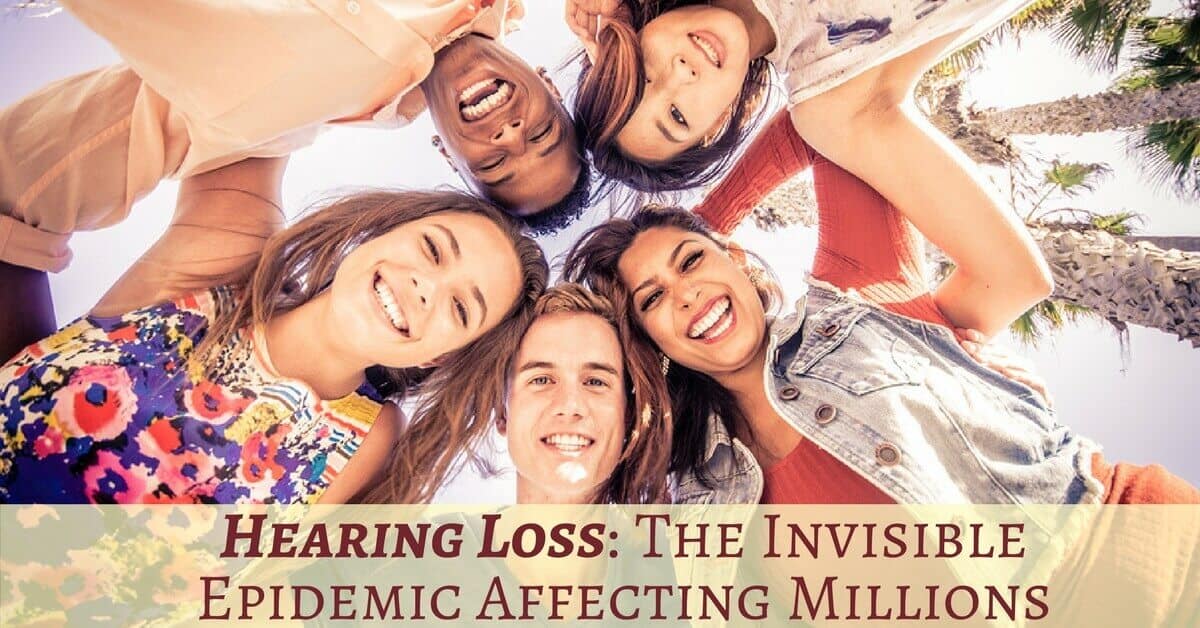
Have you ever felt like you’re the only person in the world who struggles to hear? You can’t spot anyone else with hearing loss, and that’s exactly what makes this an “invisible epidemic.” While everyone seems to be easily interacting with friends and colleagues, the truth is over 37 million Americans have hearing loss, and just like you they’re doing their best to hide it. Hearing loss is invisible because there are no outward symptoms, and two out of every three people with hearing loss suffer in silence without telling their loved ones, or seeking treatment.
Consequences of Life with Hearing Loss
According to De Wet Swanepoel, professor of audiology at Pretoria University in South Africa, “hearing loss is considered an invisible epidemic because people don’t see it or know that someone suffers from it.” While you might be embarrassed to talk about your hearing loss, or admit that you struggle to hear, living with hearing loss has some severe consequences. Personal relationships suffer, since communicating with family and friends becomes challenging. Those with hearing loss say they feel socially isolated, and many develop anxiety or depression. Did you know hearing loss also increases your chances of developing dementia? Just because no one notices your hearing loss doesn’t mean you should ignore it and hope it goes away – hearing loss is a permanent condition.
Children with Hearing Loss
There are 360 million people around the world who suffer from hearing loss, and 32 million of these are young children. For children and teens, the consequences of hearing loss are even more profound, as hearing loss delays development, makes learning a challenge, and stands between them and personal and professional success. With no outward signs of hearing loss, some parents don’t notice their child’s hearing loss right away, and it might go unnoticed far too long.
Unrecognized and undiagnosed hearing loss in children is especially concerning in remote areas where diagnosis and treatment options are limited. In rural areas in South Africa, for example, children with hearing loss don’t have the same educational opportunities as their hearing peers, and this will affect the rest of their lives.
Making Diagnosis Easier
A free smartphone app call HearScreen, running on the mHealth Platform, is revolutionizing how hearing loss is detected and measured. Designed by a team at Pretoria University in South Africa, the app can be operated by non-specialists, and will accurately measure hearing loss in both children and adults. Using only a smartphone and a pair of headphones, the app is designed to use the phone’s speakers and microphone to monitor background noise and send sounds at various pitches and volumes right to your ears. The test takes just two minutes, and gives a unique score after each test, a higher score indicating better hearing. The exact data is stored in the cloud, where hearing specialists can analyze the data and provide an accurate diagnosis without having to travel to remote areas.
The app is being used mainly in rural areas, and Swanepoel says its “providing many populations with access to hearing testing for the first time.” This means more children will receive the treatment they need to succeed. For those diagnosed with hearing loss, the app uses geolocation to search for the nearest healthcare facilities, and recommends follow-up services like hearing aid fittings.
The World Health Organization (WHO) has assessed the quality of the app, and supports this new technology, recognizing it’s potential to be a game changer for those with hearing loss in developing countries around the world. To learn more about the HearScreen app, visit http://www.bbc.com/news/business-39217968.
Be Careful Who You Trust
For those with easy access to audiologists, such as most Americans, the WHO still recommends visiting your local hearing specialists once a year for a check-up. A recent study found that there are over 259,000 health apps that measure everything under the sun, from heartrate to lung capacity, testing eyesight, diagnosing skin conditions, or making weight loss recommendations. While some of these apps can provide a valuable service, they cannot replace the advice of a trained professional.
Book a Hearing Test
If you suffer from the invisible epidemic that is hearing loss, it’s time to step out of the shadows and make the right choice for your health. Call us today at one of our My Hearing Centers locations to book a hearing test, and we’ll provide you with accurate information about your hearing loss and treatment options.
